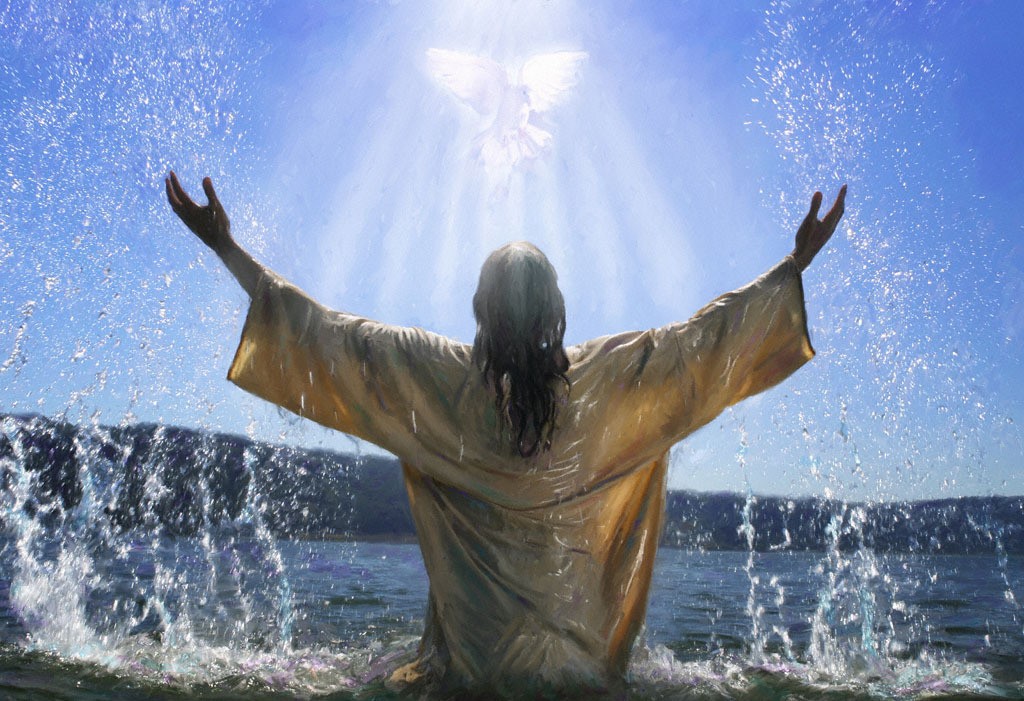The Holy Spirit played a vital role in the incarnation. Gabriel, an angel, was sent by God to Mary in Nazareth. He told her she would conceive and bear a son to be named Jesus. Mary naturally wondered how that could happen since she was a virgin. Gabriel informed her that the Holy Spirit would overshadow her and "that Holy One who is to be born will be called the Son of God" (Luke 1:26-38). This resulted in a baby being born who was uniquely the seed of woman, as God had promised in the Garden of Eden (Genesis 3:15; Galatians 4:4).
That birth fulfilled Isaiah’s prophecy (Isaiah 7:14). Jesus was "God with us” because he was conceived of the Holy Spirit. Mary did not have relations with any man, even Joseph, until Jesus was born, thus the Lord was born of a virgin (Matthew 1:18-25). Matthew traced Jesus’ legal lineage by going through Joseph, but he was careful to write, "And Jacob begot Joseph the husband of Mary, of whom was born Jesus who is called Christ" (Matthew 1:16; Luke 3:23). He was born of Mary, not a begetting of Joseph.
Jesus was baptized and the Spirit descended like a dove (Mark 1:9-10; Matthew 3:16; Luke 3:22). John the baptizer witnessed the Spirit descending, saying that was how he knew Jesus was the one who would baptize with the Holy Spirit (John 1:29-34). Following the baptism, “Jesus was led up by the Spirit into the wilderness to be tempted by the devil" (Matthew 4:1; Mark 1:12). Luke adds that Jesus was "filled with the Holy Spirit" (Luke 4:1).
Jesus next "returned in the power of the Spirit to Galilee, and news of Him went out through all the surrounding region." He went into the synagogue in Nazareth on the Sabbath. He read from Isaiah 6:12 and said, "Today this Scripture is fulfilled in your hearing." He thus claimed to be speaking by the Holy Spirit (Luke 4:16-21). Luke affirmed that when he wrote, "The former account I made, O Theophilus, of all that Jesus began both to do and teach, until the day in which He was taken up, after He through the Holy Spirit had given commandments to the apostles whom He had chosen" (Acts 1:1-2).
The story of a dispute between John’s disciples and the Jews includes an interesting statement. "For He whom God has sent speaks the words of God, for God does not give the Spirit by measure" (John 3:34). We would say Christ received the Holy Spirit fully. God had promised to put his Spirit upon his Servant as He declared the gospel which even the Gentiles would receive (Isaiah 42:1-4; Matthew 12:15-21). When the seventy returned joyfully from carrying out the limited commission, Luke says, "In that hour Jesus rejoiced in the Spirit" (Luke 10:21).
Peter told Cornelius that Jesus was anointed “with the Holy Spirit and with power" (Acts 10:38). A power seen in healing the blind and mute man who was demon possessed. The Pharisees accused him of casting out demons by the power of Beelzebub, the ruler of the devils. Jesus showed it was not logical for Satan to cast out his own workers. The Lord cast out demons "by the Spirit of God" (Matthew 12:22-30; Mark 3:20-30).
Jesus’ sacrificial blood was offered through the eternal Spirit (Hebrews 9:13-14). The Spirit’s role continued in the resurrection. Paul declared, ”But if the Spirit of Him who raised Jesus from the dead dwells in you, He who raised Christ from the dead will also give life to your mortal bodies through His Spirit who dwells in you" (Romans 8:11; 1:4).
The Holy Spirit played an active role in the life of the incarnate Son of God. He caused Mary to be with child without having ever known a man. He descended from heaven at Christ’s baptism. He led Jesus into the wilderness. He helped Jesus deliver the glorious message of God’s plan to save man. Every miracle the Lord worked was through the power of the Holy Spirit. Even in the Messiah’s death and resurrection, the Spirit played a critical role. Thank God for the working of the Holy Spirit in the life of Christ!
- A spiritual house of living stones - 2026-01-23
- Born through the Word of God - 2026-01-09
- The Christian’s call to be holy - 2025-12-18
